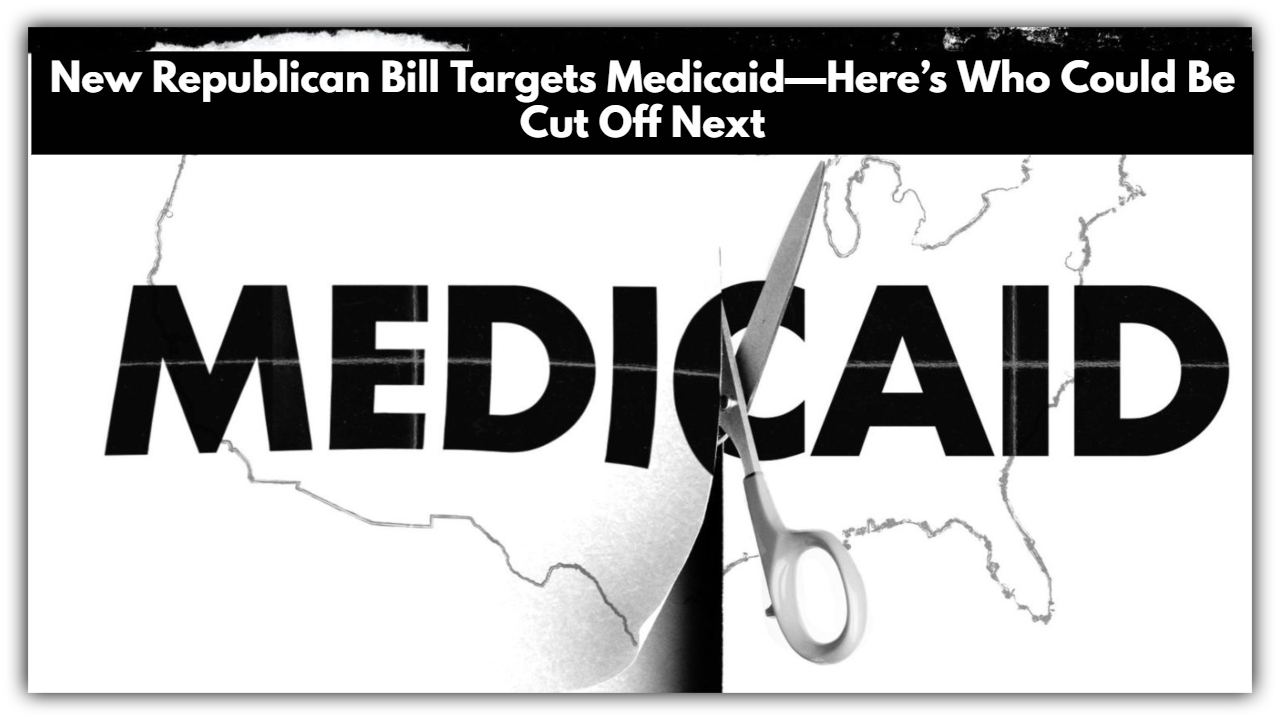New Republican Bill Targets Medicaid—Here’s Who Could Be Cut Off Next
If you or someone you care about depends on Medicaid, the latest Republican budget bill is something you should know about. It’s not just another political headline — this bill makes some big changes that could hit millions of people hard.
Let’s walk through what’s in the bill, who’s most affected, and what it could mean for the future of healthcare in the U.S.
What’s Actually in the Bill?
This bill — often referred to as the “Big Beautiful Bill” — includes a number of Medicaid changes that are raising red flags for advocates, hospitals, and everyday Americans.
1. Work Requirements Are Coming Back
One of the biggest changes is that many adults will need to work at least 80 hours a month, do community service, or be in a job training program to qualify for Medicaid.
It’s not just targeting people who are unemployed by choice. These rules could apply even to folks with disabilities, pregnant women, and people who get Supplemental Security Income (SSI). And that’s where a lot of the concern comes in — it’s a much broader net than it might seem.
2. Deep Federal Funding Cuts
The bill would cut nearly $700 billion in federal Medicaid funding over the next decade. That’s a massive reduction that could leave states scrambling to make up the difference — or forced to cut people off the rolls.
3. Narrowing Who’s Covered
The bill specifically excludes undocumented immigrants from any Medicaid support. It also bans Medicaid coverage for gender-affirming care. These changes are part of a broader effort to limit who Medicaid serves and what services it can pay for.
Who’s Going to Feel This the Most?
Not everyone will be affected in the same way. Some groups are especially vulnerable under the new rules.
People Who Got Coverage Through the ACA
Roughly 10 million people got Medicaid coverage thanks to the Affordable Care Act’s expansion. These are folks who may not qualify under traditional Medicaid rules but still need help affording care. With the funding cuts and stricter requirements, many of them could lose coverage entirely — especially if their state decides the program isn’t financially sustainable anymore.
Children, Families, and People With Disabilities
In states like New York, Medicaid covers over 7 million people — including kids, seniors, and people with disabilities. These are folks who often have no other options for health coverage. If state budgets take a hit from reduced federal funding, these are the kinds of services that could be first on the chopping block.
Rural and Tribal Communities
Hospitals in rural areas — especially those serving Native American communities — rely heavily on Medicaid to keep their doors open. If the money dries up, many of these hospitals could close. That would leave entire regions without access to emergency rooms, maternity care, or specialists.
What This Means for Healthcare Access
This isn’t just about insurance coverage. This is about access to healthcare itself.
A recent study flagged more than 740 rural hospitals that are at risk of closing, including 78 in Texas alone. These aren’t just buildings. These are lifelines for communities. When a rural hospital shuts down, it’s not just inconvenient — it’s dangerous. People could end up driving hours for care they used to get just a few minutes away.
The Bigger Picture: Politics and the Economy
This bill only passed the House by one vote — 215 to 214 — so it’s already controversial. Supporters argue it’ll reduce spending and encourage people to work. But critics say it could backfire by increasing poverty, worsening health outcomes, and putting more strain on emergency rooms and local economies.
Many also point out that while the bill includes spending cuts for programs like Medicaid, it also includes tax breaks that disproportionately benefit the wealthy. That’s adding fuel to an already heated debate about who gets help — and who doesn’t.
Why It Matters
Medicaid isn’t some abstract government program. It’s a safety net that touches millions of lives — kids, elderly folks, people with disabilities, families working two jobs and still struggling to afford care.
This bill doesn’t just change the rules. It changes the values behind those rules. It draws a new line around who’s considered “deserving” of help — and that’s something that affects all of us, whether we’re on Medicaid or not.



Comments are closed, but trackbacks and pingbacks are open.